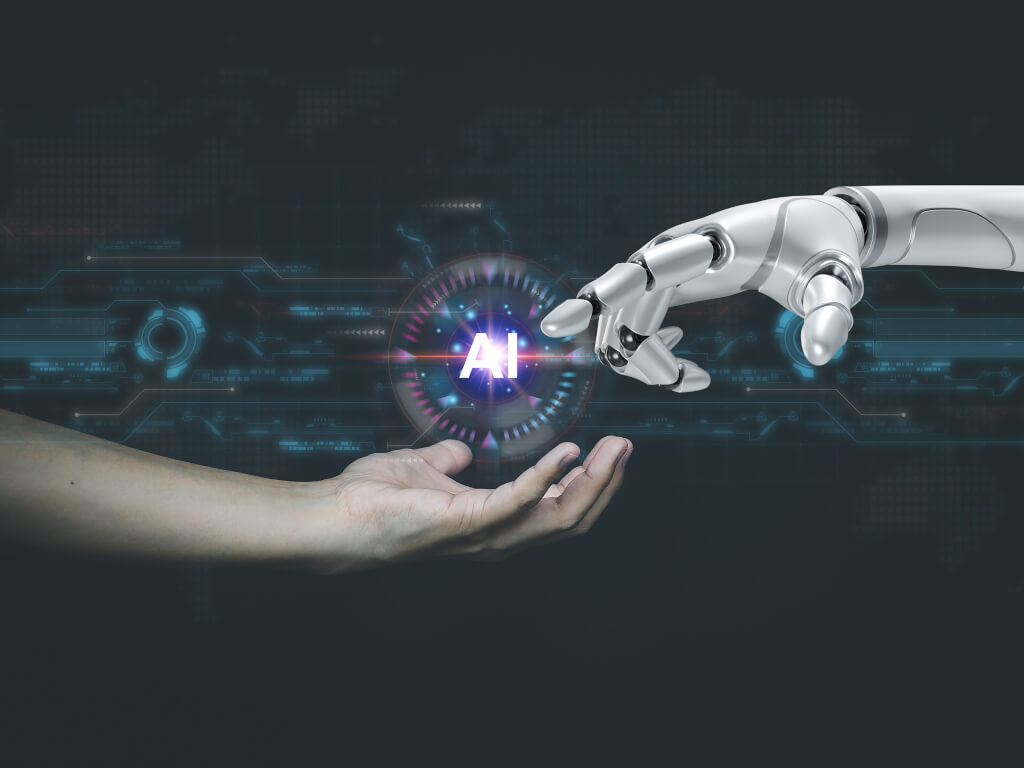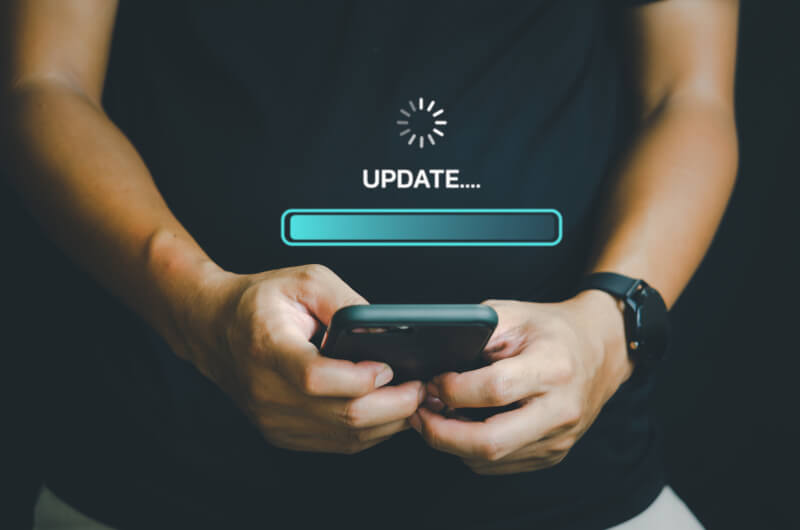It was once taboo to admit meeting a partner online. Today, not having a digital dating story is more of an exception than the norm. This change in dating culture is indicative of a larger shift in society’s approach to relationships, as many individuals now form intimate connections with AI-enabled entities.
Digital Love Tales: More Common Than You Think
Gone are the days when couples lied about meeting online due to the attached stigma. Modern dating sees Tinder, Grindr, and Hinge as common mediums for love stories. This digital relationship revolution hints at an intriguing possibility: what if AI plays a bigger role in our emotional lives?
From Chatbots to Human-like Companions
Our research delves into the fascinating world of human-machine intimacy. We’ve looked at physical robots like RealDollx and the AI-powered chatbot Replika to understand the drive behind these technological relationships. And, our findings may surprise you.
Beyond the Bedroom: AI’s Emotional Appeal
The stereotype suggests that the lonelier you are, the more likely you might turn to an AI for romantic or sexual satisfaction. However, our preliminary findings debunk this myth. It’s not loneliness, but rather a combination of curiosity, sexual preferences, and the desire for diverse experiences that lead people towards AI relationships. More so, many find AI useful for therapy, companionship, and general entertainment.
The Ethical Dilemma of AI Relationships
There’s an underlying concern about the increasing dependence on artificial companions. Pioneers in sociology like Sherry Turkle warn of a world where we might be “alone together,” more connected to machines than humans. As we usher into the era of “relationships 5.0,” where technology becomes a fundamental part of our emotional landscape, the complexities of human-AI bonds require deeper exploration.
Therapeutic and Rehabilitative Roles of AI
The potential therapeutic benefits of romantic and sexual AI systems are being studied. Some professionals believe that sex robots could assist with trauma healing, help the elderly or disabled explore their sexuality, or even rehabilitate offenders. These promising avenues come with their share of ethical dilemmas and societal judgments.
Facing the AI Relationship Stigma
Even as sex toys gain acceptance, the users of advanced “sex tech” continue to confront societal judgments. The stigma intensifies when it involves AI, potentially influencing the user experience and satisfaction from these AI relationships.
Replika: Digital Heartbreaks and Legal Battles
Take the Replika app as an example. Touted as the AI companion that cares, it engages in intimate conversations with users. However, following data privacy concerns raised by the Italian Data Protection Authority, the app’s dynamics were altered. This change led to users experiencing emotions akin to a real-life breakup. Such instances highlight the profound emotional impacts of AI companionships and the legislative challenges they pose.
Embracing the AI Relationship Future
Initial reservations about dating apps remind us that while technological advancements in relationships often meet resistance, adaptation follows. Considering this, it might not be too ambitious to predict that AI-powered romantic and platonic relationships could soon become a societal norm.
Pros of Automated Love and Friendship
Unwavering Emotional Support
One of the undeniable benefits of AI relationships is the consistent emotional support they offer. Unlike humans, machines don’t get tired, distracted, or emotionally drained. They are always there, ready to listen, offering a safe space for users to express their feelings without fear of judgment.
Freedom from Complex Human Dynamics
Human relationships can be intricate, filled with misunderstandings, mood swings, and past baggage. An AI relationship provides a simplified version of companionship without the complications of human dynamics. There’s no history, no grudges, just the present moment.
Therapeutic Potential
As highlighted in the article, AI companions can be employed therapeutically. For individuals recovering from trauma, facing loneliness, or living with disabilities, AI can offer a comforting presence. The controlled environment can also be used for rehabilitation purposes, especially in cases of sexual offenders.
Personal Growth and Exploration
The non-judgmental nature of AI allows users to explore aspects of their personality, desires, or fears that they might find difficult to discuss with humans. This can be a path to self-awareness and personal growth.
Cons of Automated Love and Friendship
Loss of Genuine Human Connection
Relying heavily on AI for emotional support and companionship can lead to a decreased emphasis on real human connections. Over time, this might result in isolation and a reduced ability to navigate human relationships, with all their complexities and nuances.
Ethical and Moral Dilemmas
The idea of forming intimate relationships with machines raises several ethical concerns. From the potential for AI to be programmed to manipulate users for commercial gain to the moral implications of using robots for therapeutic purposes, there’s a minefield of issues to navigate.
Societal Stigma and Misunderstandings
Despite the growing acceptance of digital relationships, there’s still a significant societal stigma attached to forming close bonds with machines, especially in the context of “sex tech.” This can lead to feelings of shame, secrecy, or alienation for users.
Potential Data Privacy Concerns
Engaging in intimate conversations with AI companions often involves sharing deeply personal information. Given the potential for data breaches and misuse, there’s a risk associated with entrusting machines with our most private thoughts and feelings.
Emotional Dependency Risks
Just as with any relationship, there’s a potential risk of becoming overly dependent on AI for emotional well-being. This can prevent individuals from seeking human interactions or professional help when facing challenges, relying instead on the machine’s programmed responses.
The Future Of Digital Affection
Understanding the potential impacts of these AI-driven relationships will help you and your loved ones make informed decisions about how to navigate this new emotional landscape.
Enriched Emotional Landscapes
For many, AI companionship could usher in an era of enriched emotional landscapes. Imagine a future where your AI friend understands your mood shifts, offering comfort after a hard day or celebration after personal successes. Such constant support might mean fewer bouts of loneliness and a persistent feeling of being understood, particularly valuable in moments when human connections fall short.
Redefining Relationships and Intimacy
The traditional definition of relationships and intimacy is poised for a seismic shift. As more individuals form bonds with their AI counterparts, society’s understanding of love, companionship, and friendship will expand. This could result in broader acceptance of diverse relationship forms, making room for everyone’s emotional choices and breaking age-old norms. For you, it might mean a broader understanding and acceptance of what intimacy can look like in your life.
The Balance of Dependency
However, like every rose has its thorns, there’s a caveat to this emotionally charged future. The risk of over-dependency on AI for emotional well-being might make it challenging for some to form or maintain human connections. You and your loved ones must strike a balance, ensuring that while AI provides support, it doesn’t replace the irreplaceable human touch.
Data-Driven Emotional Intelligence
The future might witness a surge in data-driven emotional intelligence. With every interaction, AI learns more about human emotions, responses, and needs. This could lead to more empathetic AI systems that cater to your emotional needs in unprecedented ways. However, this also brings forth concerns about data privacy and the moral implications of AI knowing too much about our innermost feelings.
Towards a Harmonized Emotional Ecosystem
In the end, the goal is to harmonize the coexistence of human and AI relationships. As these digital relationships become more commonplace, understanding their potential impact and setting personal boundaries will be paramount. The future promises an intricate dance of human and machine emotions. Being prepared and informed will ensure that you and your loved ones can harness the best of both worlds, creating a richer, more diverse emotional tapestry for yourselves.




